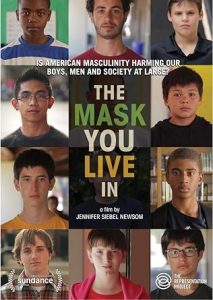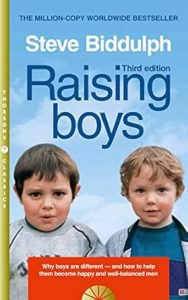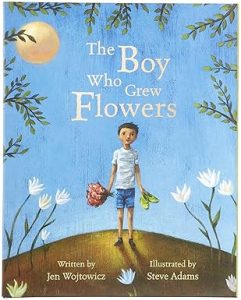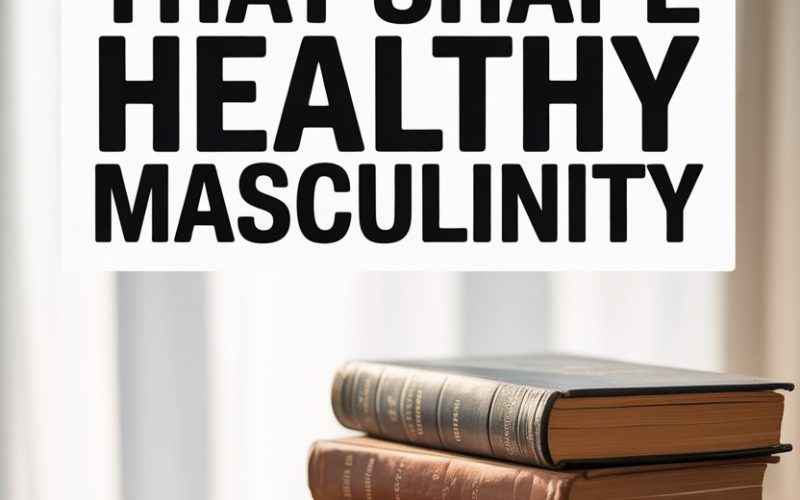If your son’s latest classroom drawing features a caped hero who rescues kittens, builds a rocket, and then sits quietly with his feelings—well, you’re likely already winning at the “healthy masculinity” game.
For the rest of us, raising boys who grow up kind, confident, and emotionally intelligent can be a wild ride.
Between cricket matches, lost lunch boxes, and the perennial debate over whether socks can, in fact, be worn more than one day in a row, it’s no wonder parents crave simple, trustworthy resources.
Books can be that rare breed of ally: equal parts entertaining and enlightening.
The right story can nudge a young lad (or his grownups) toward a more caring, self-aware version of manhood—without feeling like a lecture from someone who only wears corduroy and uses “problematic” as every third word.
Chuck these three books onto your bedside pile. They’ll help you, your son, and even your partner rethink what it means to be a “real man”—and none of them require a single push-up.
1. The Mask You Live In: The Book Version

Documentary fans may recognise The Mask You Live In from screens, but Jennifer Siebel Newsom’s movement also spawned a book that’s tailor-made for parents looking to decode modern masculinity.
If you’ve ever heard, “boys don’t cry!” from relatives at family gatherings (and resisted the urge to throw the trifle), this book is for you.
The Mask You Live In unpacks how society’s expectations can box boys into a narrow idea of what’s “manly”—stoicism, aggression, emotional constipation (for lack of a better term).
Newsom and her team offer practical strategies for encouraging boys to express feelings, build empathy, and embrace connection. Real stories from parents, teachers, and the boys themselves keep it grounded, rather than preachy.
What makes this book a standout? There’s a focus on the “how,” not just the “why.”
Strategies range from encouraging open-ended conversations about feelings, to gently challenging playground bravado, to modeling vulnerability yourself (deep breaths—it gets easier).
The takeaway: masculinity isn’t a straitjacket; it’s an outfit kids can stitch together themselves, with all the colours they fancy.
If you’re after more than just anecdotes, the book draws on research from the American Psychological Association, which points out that traditional masculinity can be linked to increased risk of depression and risky behaviours, particularly in boys.
The book’s suggestions for fostering emotional intelligence aren’t just “nice to have”—they can shape mental health for years to come.
Try this tonight: When your son is upset, instead of “toughen up,” try, “I can see you’re having a hard time. Want to talk about it or just hang out?”
Spoiler: Either option is miles better than the old “walk it off.”
2. Raising Boys: The Steve Biddulph Classic

Steve Biddulph is the sort of parenting guru who makes you want to put the kettle on and listen to tales about growing up in the outback—except his advice works just as well whether you live in Birmingham or Brisbane.
Raising Boys has topped bestseller lists for years, and for good reason: it’s funny, honest, and never makes you feel like you’ve ruined your child because you once let him watch three episodes of Bluey back-to-back.
Biddulph dives into the science of boys’ development, with just enough detail to satisfy the “why” crowd without losing those of us who haven’t had a full night’s sleep in a decade.
He covers everything from the biology of boy brains to the importance of role models who show gentleness and resilience.
One of the book’s biggest strengths is its practical approach to “emotional coaching”—teaching boys to name, accept, and manage their feelings, even when those feelings look suspiciously like a full-scale wrestling match in the lounge.
Biddulph draws on research from the University of Cambridge showing that emotional skills learned in childhood have a long-term impact on adult wellbeing, relationships, and even career success.
There’s also plenty about positive male role models—coaches, teachers, uncles, grandads—who can show that kindness and strength often walk hand in hand.
Biddulph reminds us that healthy masculinity isn’t about suppressing emotion, but about learning which feelings help us grow and connect.
Real-life tip: When your son lashes out or clams up, resist the urge to problem-solve immediately.
Sometimes, just saying, “I get why you’re angry, mate. That stinks,” opens the door for a real conversation—or at least a grudging half-hug.
3. The Boy Who Grew Flowers by Jen Wojtowicz

Not every book shaping healthy masculinity comes from the “parenting” section. Sometimes the greatest lessons hide inside picture books, and The Boy Who Grew Flowers is a gem.
If you’re raising a lad who feels “different” (or just want him to value those who are), this story will become a bedtime favourite.
The tale follows Rink Bowagon, a shy boy with a magical secret—during the full moon, he sprouts flowers all over his body. Schoolmates avoid him, assuming he’s too odd.
Enter Angelina, the new girl, who’s got her own quirks. What unfolds is a gentle celebration of difference, empathy, and true friendship.
Wojtowicz never preaches; instead, she invites kids to see that real strength lies in embracing what makes us unique, and showing kindness to others who walk their own wobbly path.
For boys bombarded by messages about fitting in or acting “tough,” Rink’s journey offers a welcome counterbalance. There’s no rescuing of damsels or wrestling of dragons—just quiet courage, emotional vulnerability, and a heap of heart.
This book makes it easy for parents to start conversations about feelings, self-acceptance, and standing up for friends who might be left out.
If you need a nudge, try: “What would you do if you saw someone like Rink at your school?” You might be surprised by your child’s answer.
For those who like a little science behind their storytime, a Columbia University study found that reading fiction can boost empathy and emotional intelligence, which, last time anyone checked, never hurt anyone.
Bonus: The illustrations are gorgeous, and you won’t mind reading this one for the fifth night running.
Why Stories Matter More Than Ever
Parenting sons in an era where “man up” is finally going out of fashion (good riddance) means a new script is needed. These books don’t just hand out instructions; they crack open conversations that linger long after the last page.
They show boys—our future men—that being brave and being gentle aren’t opposites. That real heroes can feel scared, talk about their worries, and still be the coolest kid in the room.
Tonight, when your son asks for one more story, consider swapping knights and ninjas for one of these picks. You might just plant the seeds for a kinder, wiser breed of man.
And who knows? He might even remember to change his socks.




